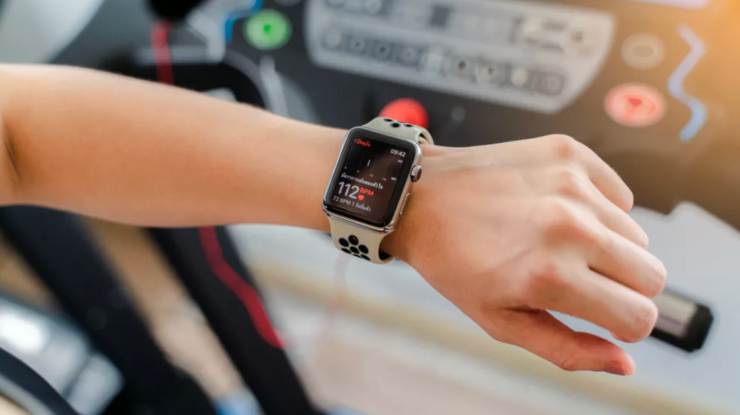Can smart watches also be used to detect COVID-19?
According to recent research, smart watches and other wearable devices may play an important role in the early detection of COVID-19. Nowadays, some companies are even developing a customizable wearable device to help asymptomatic patients detect whether to switch to COVID-19 and take quarantine measures in advance.

Last year, in a study called "Wairror Watch", researchers from Mount Sinai found that Apple Watch can detect subtle changes in the user's heartbeat and predict that the user may be infected within 7 days before the onset of obvious symptoms. COVID-19.
Specifically, the research team tracked 297 medical workers between April 29 and September 29. Participants wore an Apple Watch equipped with a special application that measures changes in their heart rate variability (HRV). HRV refers to the time change between each heartbeat, and it is also an indicator of the working condition of a person's immune system.
The author of the study, Dr. Robert Herten, an assistant professor at Icahn School of Medicine in New York City, said: "We already know that HRV markers change with inflammation in the body. COVID is a serious inflammation. According to the study. It was shown that there were significant changes in HRV indicators in the seven days before an individual was tested for nasal swabs and confirmed to be infected with COVID-19."
Stanford University has also done a similar study and found that among COVID-19 patients wearing various smart watches such as Apple Watch, Fitbit, Garmin and other products, 81% of them were in the first nine days of COVID-19 showing obvious symptoms. HRV is abnormal.
At present, the most challenging thing to deal with the global COVID-19 pandemic may be to identify asymptomatic infected people who are infected with COVID-19, because these infected people have no symptoms but are still contagious and will spread the virus unknowingly.
Research such as this shows that seemingly ordinary consumer technology can allow people to easily identify early signs of hidden symptoms, and can play an important role in the management of future epidemics.
Dr. Hilten said: “The development of a method that allows an infected person to know if they are infected before their symptoms of infection manifests is indeed a breakthrough in COVID-19 management. This technology not only allows us to track And predict health outcomes, and remotely intervene in a timely manner."
Based on these studies, a company called NeuTigers is currently developing a customized wearable device specifically for early detection of COVID-19.
The company realizes that consumers' smart watches can recognize the symptoms of epidemics, so it uses Princeton University's research results to develop an artificial intelligence product called CovidDeep, which can help inform clinical or home care staff of its transmission risk.
The product first obtains the patient's heart rate, blood pressure and other health parameters through a wearable patient monitor called Empatica E4, and then transmits it to the CovidDeep system, which detects the virus at a speed of 90%, which is more than typical The temperature test is more accurate.
At present, NeuTigers is working hard to bring such products to the market, but the specific market time is still unknown. What can be confirmed is that NeuTigers is committed to developing an internal application that can be used with smart watches from Apple, Fitbit, Samsung and other brands.
As the vaccine begins to be promoted globally, the next step is to ensure that infected patients are detected as early as possible. Smart watches that can detect COVID-19 may be an important step in the global response to COVID-19.


 1901 Harrison St Suite 1100, Oakland, CA 94612, USA
1901 Harrison St Suite 1100, Oakland, CA 94612, USA 3039930373
3039930373 amcorinc@outlook.com
amcorinc@outlook.com